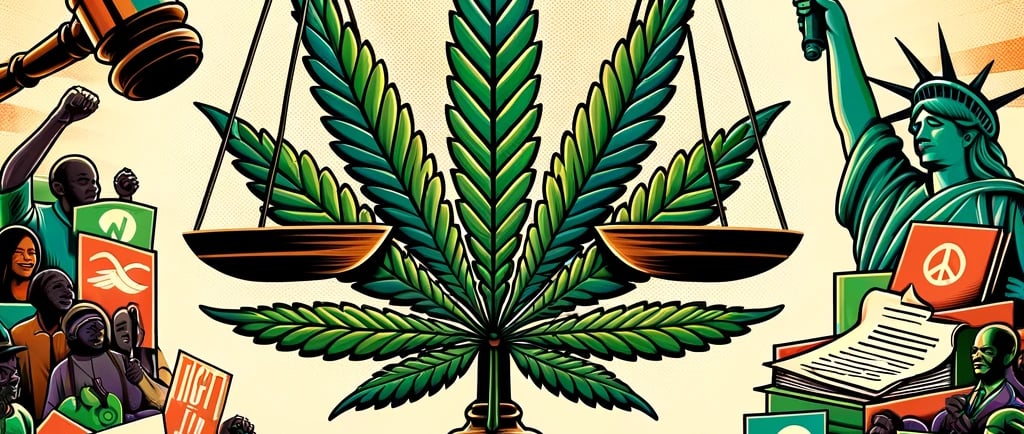Cannabis Legal Reform and Social Justice
The movement towards cannabis legal reform is intricately linked with broader social justice issues. As countries and states reconsider cannabis laws, there's a growing recognition of the need to address the historical injustices inflicted by decades of prohibition. This article delves into the intersection of cannabis legal reform and social justice, exploring how changes in cannabis legislation are contributing to efforts to rectify past wrongs, reduce inequalities, and foster a more equitable society.
CANNABIS GUIDE
3/1/20241 min read


Historical Context of Cannabis Prohibition
Cannabis prohibition has a long history marked by racial and social disparities. In many regions, enforcement of cannabis laws disproportionately targeted minority communities, leading to high rates of incarceration and long-term social and economic repercussions for these populations.
The Shift Towards Legalization
The global shift towards cannabis legalization, both medical and recreational, is often framed as a response to the growing evidence of cannabis's therapeutic benefits. However, it also reflects a broader societal shift towards recognizing and correcting the injustices of past drug policies.
Impact on Social Justice
Cannabis legal reform is increasingly seen as a social justice issue, with legalization efforts often including measures to address past injustices:
Expungement of Criminal Records: Many legalization initiatives include provisions for the expungement of criminal records related to non-violent cannabis offenses, offering individuals a second chance and reducing lifelong barriers to employment, education, and housing.
Equitable Industry Access: Efforts are underway to ensure that the legal cannabis industry is accessible and equitable, particularly for those communities most adversely affected by cannabis prohibition. This includes policies aimed at promoting minority ownership and employment within the cannabis sector.
Redirecting Cannabis Revenues: Some regions are allocating a portion of cannabis tax revenues to fund community programs, education, and social services, particularly in communities disproportionately impacted by previous drug enforcement policies.
Challenges and Criticisms
While there is significant progress, the path to ensuring that cannabis legalization supports broader social justice goals is fraught with challenges. Critics point out that, in some cases, the benefits of legalization have not been evenly distributed, with large corporations dominating the industry and insufficient measures in place to support those most harmed by prohibition.
The Role of Activism
Activism plays a crucial role in linking cannabis legal reform with social justice. Advocacy groups are at the forefront of pushing for policies that not only legalize cannabis but also address the broader implications of its prohibition. They highlight the need for comprehensive reforms that go beyond legalization to tackle the root causes of inequality and injustice in drug policy.
Looking Forward
The intersection of cannabis legal reform and social justice represents a critical area of focus in the ongoing debate about cannabis laws. As the movement towards legalization continues to gain momentum, there's a growing opportunity to leverage these changes as a catalyst for broader social and economic justice.
The future of cannabis legalization is not just about changing laws but about reshaping society in a way that rectifies past injustices and fosters a more equitable and inclusive world.
